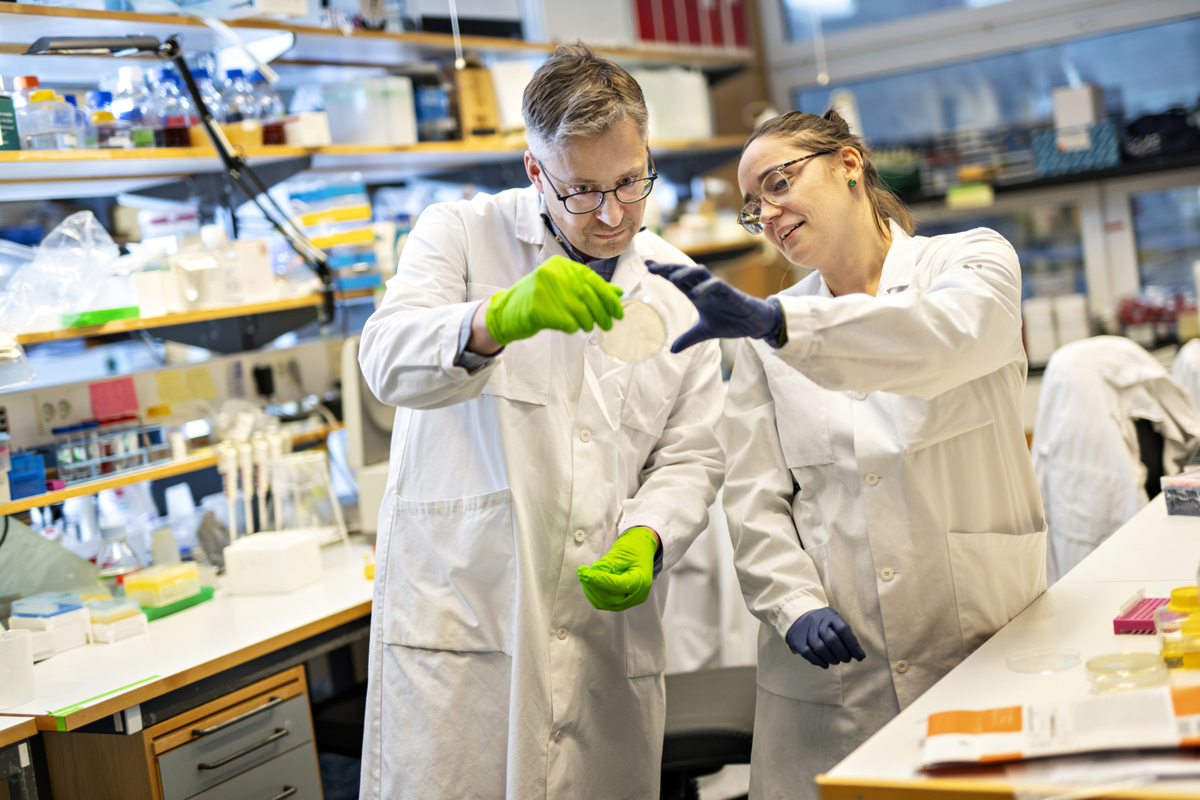Researcher in Plant Epigenetics - Hiring in process/Finished, not possible to apply
This advert is not available!
Lund University, Faculty of Science, Department of Biology
Lund University was founded in 1666 and is repeatedly ranked among the world’s top universities. The University has around 47 000 students and more than 8 800 staff based in Lund, Helsingborg and Malmö. We are united in our efforts to understand, explain and improve our world and the human condition.
Lund University welcomes applicants with diverse backgrounds and experiences. We regard gender equality and diversity as a strength and an asset.
Subject description
Plants have an amazing ability to respond to environmental challenges through intracellular regulation of their functions. While much focus had been on the roles of genes coding for proteins, plant genomes are vast, containing largely non-coding DNA with unclear functional roles for cells. Our past research revealed how the non-coding genome of plants contributes to cellular resilience mechanisms through the production of non-coding RNA molecules, or through chromatin signatures that correlate with ncRNA production.
We are looking for a researcher enthusiastic about mechanistic Plant Molecular Biology in this area. Specifically, to address the question of how chromatin signatures linked to ncRNA production can inhibit gene induction (DOI: 10.1016/j.tplants.2020.03.005 , DOI: 10.1371/journal.pgen.1007969). As starting point, we have mutants disrupting this mechanism for further research. In addition, a key aspect of this project are “Epigenome Engineering” methods. These rely on targeted recruitment of histone modifying enzymes to sites where gene repression by chromatin-signaling of non-coding operates.
Here, we will utilize NGS chromatin methods (e.g. ChIP-seq, CUT&Tag, CUT&Run) to assay genome-wide as well as targeted effects of locus-specific epigenome engineering. A strong knowledge of chromatin biology, on the bench as well as on the computer for Next-Generation Sequencing data analysis, will be very helpful for the project’s completion. The research activities in the lab also include RNA biology, this position focuses on the Plant Epigenetics research area (including epigenomics data analysis). Targeted Epigenome Engineering represents a relatively fresh research area, so training in this area promises future opportunities. International research visits to collaborating labs are a possibility to strengthen the international network of the researcher. There will be a mix of participations: 1.) in ongoing activities where completion is relatively close, and 2.) in initiatives with great freedom to drive developments independently.
Work duties
Detailed description of the work duties, such as:
- Research within Plant Epigenetics
- Teaching in the first, second and third cycles of studies
- Supervision of degree projects and doctoral students
- Actively seeking external research funding
- Collaboration with industry and wider society
- Administration related to the work duties listed above
Qualification requirements
Applicants must have:
- A PhD or equivalent research qualification within the subject of the position
- Excellent ability to develop and conduct high-quality curiosity-driven research
- Documented proficiency in Next-Generation sequencing analyses
- Documented experience in analysis of Next-generation sequencing data, for example, using high high-performance computing, R and python
- Strong background in Molecular Plant Biology, especially Epigenetics
- Strong commitment to fundamental Plant Biology research
- Very good oral and written proficiency in English
Assessment criteria and other qualifications
This is a career development position primarily focused on research.
Particular emphasis will be placed on research skills within the subject.
For appointments to this researcher position, the following shall form the assessment criteria:
- Excellent ability to develop and conduct high quality research
- Proficiency in Next-Generation sequencing data analysis
- Ability to manage and handle large datasets
- Teaching skills
Additional assessment criteria:
- Interest and Passion for the outlined research project in Plant Epigenetics
- Knowledge of Epigenome Engineering approaches
- Self-motivation
- Perseverance
- Results orientation with aim to finish projects for publication
Consideration will also be given to good collaborative skills, drive and independence, and how the applicant’s experience and skills complement and strengthen ongoing research within the department, and how they stand to contribute to its future development.
Terms of employment
This is a full-time, fixed-term employment of a maximum of 1 year. Starting as soon as possible.
Contact person: Sebastian Marquardt (andreas_sebastian.marquardt@biol.lu.se).
Instructions on how to apply
Applications shall be written in English and be compiled into a PDF-file containing:
- résumé/CV, including a list of publications
- a general description of past research and future research interests (no more than three pages)
- contact information of at least two references
- copy of the doctoral degree certificate, and other certificates/grades that you wish to be considered
| Type of employment | Special fixed-term employment |
|---|---|
| Contract type | Full time |
| First day of employment | As soon as possible |
| Salary | Monthly salary |
| Number of positions | 1 |
| Full-time equivalent | 100 |
| City | Lund |
| County | Skåne län |
| Country | Sweden |
| Reference number | PA2025/1946 |
| Contact |
|
| Union representative |
|
| Published | 17.Jun.2025 |
| Last application date | 01.Jul.2025 |

